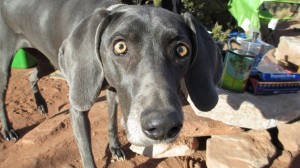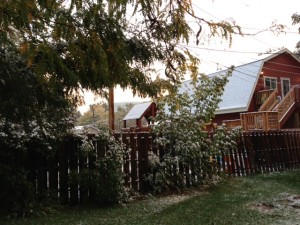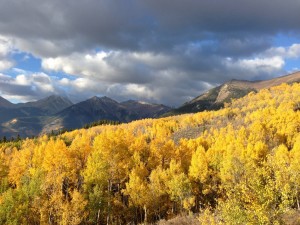The English language affords three primary ways of claiming identity:
- I ______ (verb). E.g. I swim.
- I am ______ (adjective). E.g. I am tall.
- I am a/the ______ (noun). E.g. I am a swimmer.
In written English, one establishes and assigns identity through one’s actions, one’s attributes, or one’s relational identifiers.
Of these, only actions provide useful and objective means of defining one’s self. Adjective descriptions fall short, in both their objective and subjective forms. Subjective assignments (e.g. “he’s generous”) are drawn from the assigner’s interpretation of the subject’s actions (e.g. “he gives freely”). These assignments are a step removed from the truth (which is the original action), and are as revealing of the assigner as the subject. Objective descriptions (e.g. “he is six feet tall”) reveal nothing of who a person is–only how a person looks or measures. Relational identifiers are useful for determining one’s position in life (e.g. “she’s a mother”, “he’s the boss”), but reveal little of who a person is (someone being a mother tells of nothing of whether she nurtures or neglects, whether she uplifts or treads upon). It is only one’s actions which are silmutaneously objective, true, and descriptive. Everything else is subjective interpretation, window-dressing, or relational posturing.
One’s actions, in turn, are expressions of volition, of choice, of self. Through choice, self-definition. Definition through action abstracts away good intentions and moral dilemmas. The interpretation of an action is subjective, but the action itself is not. The existentialists suggest that one gives meaning to life through one’s choices. I posit that you define not just life’s meaning but also yourself through your actions.
Each action, then, has two products: the effect of the action, and self-definition. If one acts to mold a jar or build a tree-house, one also molds and build’s one’s self. Stated differently, each action, when realized, creates two separate events. In one direction (or realm) is the action itself, changing the physical world; in another direction (or realm) is the changing and building of one’s self, of one’s identity.
Some acts are almost purely self-definition. In climbing a mountain, for example, one changes little of the physical world–aside from your location in it. But in doing so, one builds the identity of someone who is strong, of one who climbs, of one who has stood upon an accomplishment.
So, favoring actions as a basis of creating a written identity, I’ve prepared a “self statement” (a task I’ve been avoiding for a decade or so) and published it under the “About Me” link, above.
—
Post-script: There are countless modes of self-definition, but I find that all either 1) reduce to action or 2) are prejudicial more than revealing. These might include:
- One’s passions. (E.g. I care about the natural world.) If one’s passions are not borne out in one’s actions, then either your passion is weak, or self-deluding pretense.
- One’s politics, philosophy, or religion (aren’t these all, essentially, the same–beliefs which we have adopted, we cherish, and which shape our world-view?). As with one’s passions, aren’t one’s beliefs only pertinent to the extent that they shape (and express themselves through) our actions?
- One’s family, nationality, ethnicity, or place. Each of these positional identifiers identifies your background, and so identifies who or what you have a predisposition to be. But the simple fact of being from Seattle doesn’t make you a coffee drinker, being from China doesn’t make you good at math, being American doesn’t make you crass and ignorant, nor does being from a good family mean you, yourself, are good. These are a merely predispositions for how you might define yourself through your actions (e.g. if you’re from Seattle, you’re more likely than most to like coffee–but it’s your frequent consumption of it that defines you as a lover of the hot, black drink).
- One’s preferences. (e.g. “I’m a vegan” or “I’m a Mac”).


